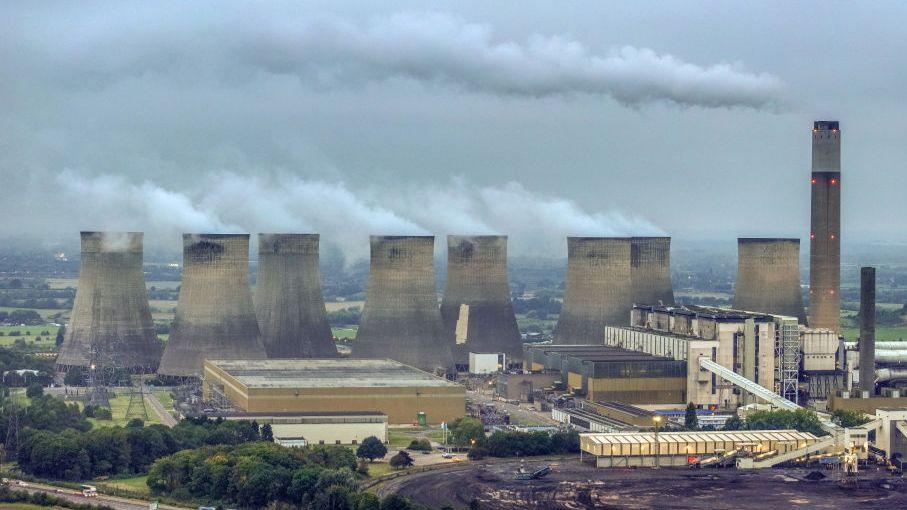
LONDON, Sept 30, 2024 (BSS/AFP) - The UK's last coal-fired power station
will officially close its doors on Monday, making Britain the first G7
country to end its reliance on the fossil fuel to produce electricity.
The closure of Ratcliffe-on-Soar, a power plant that has dominated the
surrounding central England landscape for nearly 60 years, marks a symbolic
step in the UK's ambition to decarbonise electricity by 2030, and become
carbon neutral by 2050.
"The era of coal might be ending, but a new age of good energy jobs for our
country is just beginning," Energy Minister Michael Shanks said in a
statement.
The owner of the Ratcliffe-on-Soar factory, Uniper said the site will be put
into a two-year decommissioning period beginning in October.
The 350 Uniper employees and contractors that work at the site, will either
be redeployed to other roles within the company or leave the business within
three redundancy windows before the end of 2026, Uniper told AFP.
In its place will be a new development -- a "carbon-free technology and
energy hub", the company said.
It marks the end of Britain's 140-year dependence on coal as it becomes the
first in the G7 of rich nations to do away entirely with coal power
electricity.
Italy plans to do so by next year, France in 2027, Canada in 2030 and Germany
in 2038. Japan and the United States have no set dates.
"Britain has set an example the rest of the world must follow", said Doug
Parr, policy director at Greenpeace UK.
"There are further battles to be had to phase out oil and gas, fulfilling the
promise by all countries at COP28 to transition away from fossil fuels," he
added.
- 'In the history books' -
The polluting fossil fuel played a vital part in British economic history,
powering the Industrial Revolution of the 18th and 19th centuries that made
the country a global superpower.
Even into the 1980s, it still represented 70 percent of the country's
electricity mix before its share declined in the 1990s as the government
began to implement stricter regulations to tackle pollution.
In the last decade the fall has been even sharper, slumping to 38 percent in
2013, 5.0 percent in 2018 then just 1.0 percent last year.
"Coal was the backbone of the UK's power generation for over a century, but
its place is now in the history books," said Friends of the Earth energy
campaigner, Tony Bosworth.
"The priority now is to move away from gas as well, by developing as fast as
possible the UK's huge homegrown renewable energy potential and delivering
the economic boost that will bring," he added.
In 2023, a third of electricity production was made up of natural gas while a
quarter came from wind power and 13 percent from nuclear power, according to
electricity operator National Grid ESO.
The new Labour government has plans to further decarbonise the energy mix.
It launched its flagship green energy plan after its election win in July,
with the creation of a publicly owned body to invest in offshore wind, tidal
power and nuclear power.
In recent years, Ratcliffe-on-Soar, which had the potential to power two
million homes, was only used when big spikes in electricity use were
expected, such as during a cold snap in 2022 or the 2023 heatwave.
Its last delivery of 1,650 tonnes of coal at the start of this summer barely
supplied 500,000 homes for eight hours.
The history of Britain's reliance on coal dates back to 1882, when the
world's first coal-fired power station was built in central London.